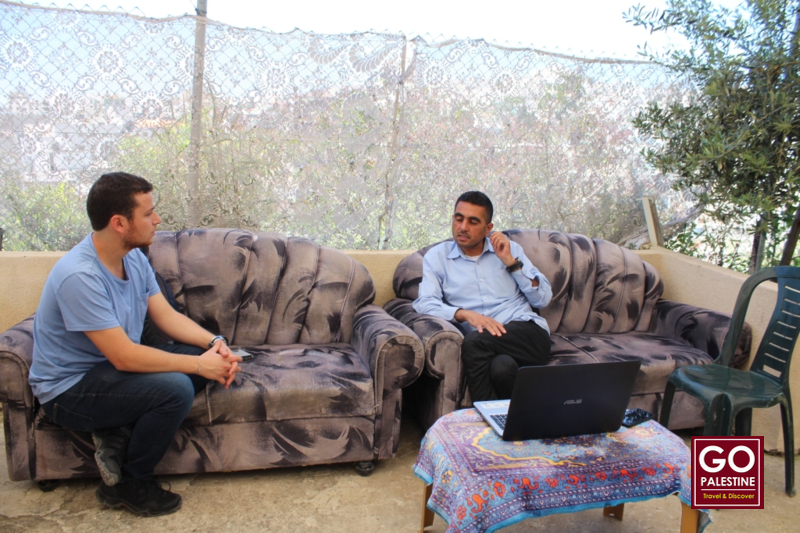
When planning a trip to Palestine, one of the first questions travelers ask is whether they will have cell phone service in the West Bank and, if so, which service provider has the best coverage in the region. While these questions appear simple in nature, they have complicated answers due to the relationship between Israelis and Palestinians that continues to influence many economic and technological issues. We will address these questions in the following paragraphs.
Will I have cell phone service in the West Bank?
Yes, you can certainly find cell phone service in the West Bank, but there are several different options for service providers—all working to varying degrees. You can either use an Israeli provider, a Palestinian provider, or an international plan from your home provider. We will talk about the advantages and disadvantages of each below.
Choosing a Wireless Provider
- Israeli Service Providers
Israel’s various mobile phone operators—including Cellcom, Pelephone, Orange, and Hot Mobile—offer pay-as-you-go SIM cards as well as cheap monthly plans with a variety of data options with up to 4G speeds. These plans will typically work in most areas of the West Bank, especially near the Palestinian border with Israel, in major cities, and near settlements; however, service is not guaranteed and reception will often be spotty. In order to use an Israeli SIM with its data capabilities, you must have an “unlocked” smartphone that is not tied to any specific contract or carrier. SIM cards can be purchased at Ben Gurion Airport and Israeli shops.
- Palestinian Service Providers
There are two mobile operators in Palestine: Jawwal and Ooredoo. Like Israeli carriers, Palestinian providers offer pay-as-you-go SIM cards and cheap monthly plans with a variety of data options; however, one disadvantage is that Palestinian networks operate at slower speeds. Until January 2018, Palestinian carriers were only able to offer 2G speeds due to an Israeli ban on high speed internet frequencies and equipment imports into Palestine. Now, Israel has finally approved of a 3G Palestinian network in the West Bank, but only after upgrading their own providers to 4G in 2014—keeping Israeli providers a step ahead of their Palestinian competition. The Gaza Strip is still deprived of high speed internet, operating on 2G networks, due to the ban. In order to use a Palestinian SIM with its data capabilites in the West Bank, you must have an “unlocked” smartphone that is not tied to any specific contract or carrier. SIM cards can be purchased and refilled at local phone shops and stores.
- Home Service Providers
Overseas cell phones and smartphones will work in the West Bank through agreements with local service providers in Palestine and Israel, but roaming charges can cost a fortune. Check with your home service provider to see if there are discounted daily or monthly international plans that you can enroll in before traveling. These plans do not require a foreign SIM card, and your phone does not need to be “unlocked” to be used with another provider.
The U.S. service provider Verizon Wireless offers international travel plans with a one time monthly bundle of minutes, texts, and data; as well as a program called TravelPass that offers unlimited calling and texting along with 4G LTE data capabilities at a daily rate of $10. With TravelPass, you will only be charged on the days you use calls, send texts, or use data on your device abroad. This daily program is particularly useful when service is needed temporarily and you are not already enrolled in a monthly plan. Additionally, you do not need to disenroll from the service when you get home. Many other foreign providers likely offer similar services, but they do tend to be more expensive than buying a SIM card from a Palestinian or Israeli provider. Be sure to do your research and assess your options based on your personal needs.
What if I choose not to get a cell phone service plan?
One final option is to forgo a cellular or mobile phone plan altogether. Many cafes and restaurants in Palestine offer free WiFi that is fast enough to make calls, send messages, and browse the internet. There is also a free city-wide WiFi network in Ramallah, with other Palestinian cities hoping to follow suit. Using WiFi based messaging and calling programs like WhatsApp, iMessage, Kik, and Facebook Messenger will be more than sufficient for keeping in touch with friends, family, and acquaintances back home and in Palestine. Furthermore, you can download offline maps of the West Bank from applications like Maps.Me to help you navigate different Palestinian cities and villages. Once downloaded, these maps do not require cellular service or a WiFi connection and can be vital to getting your bearings when exploring or arriving in a new city. Lastly, in the event of an emergency or an urgent need to post an Instagram status update once off WiFi, you can always use your home phone with roaming at a substantially higher rate, or opt-in to a previously mentioned daily option, like TravelPass, that will activate for 24-hours once a message is sent or data is used.
When traveling to the Middle East for an extended period of time, it may even be nice to unplug from the world of iPhones, social media, and constant contact. WiFi is seldom far away, and taking a break from your phone will allow you to live in the moment and embrace Palestinian and Arab culture in all its beauty.
